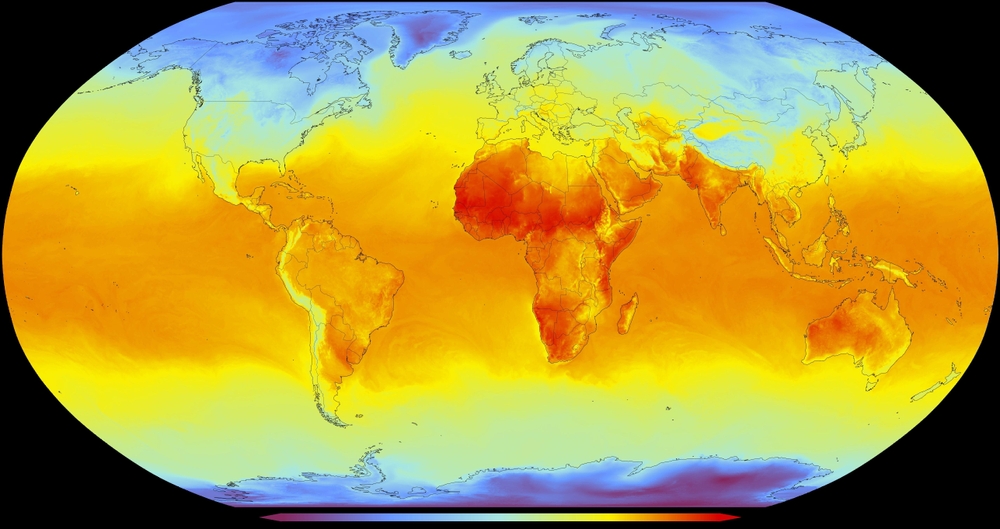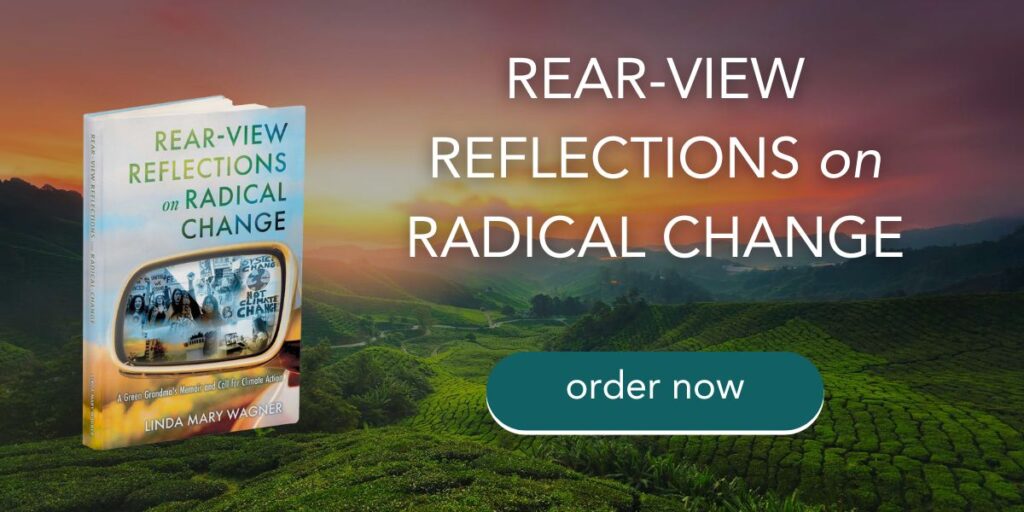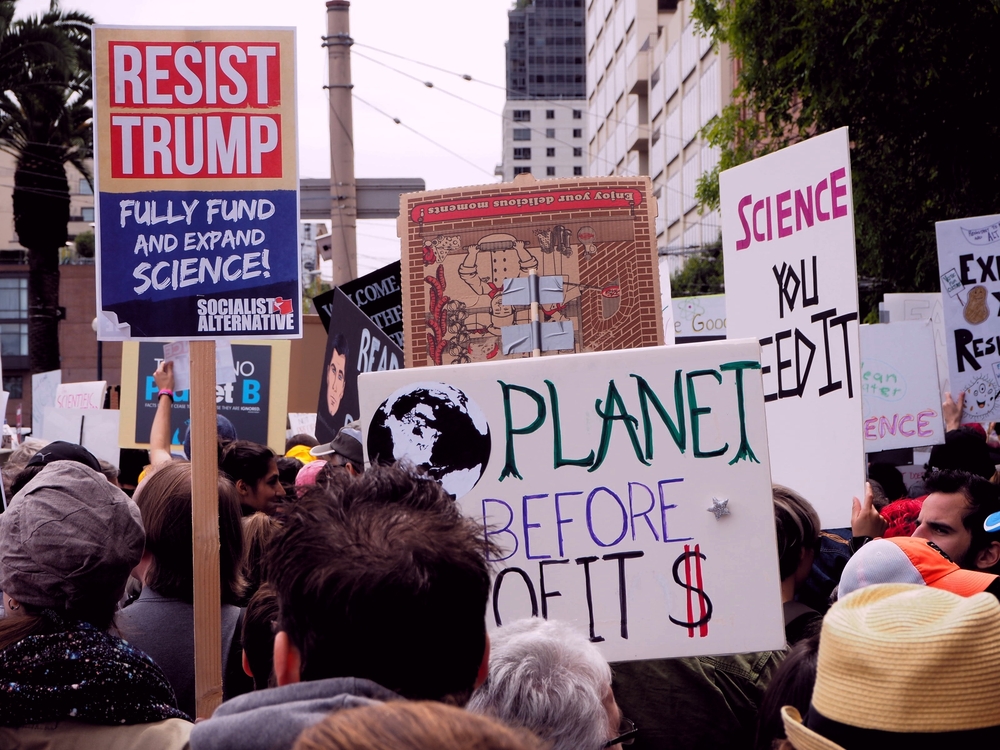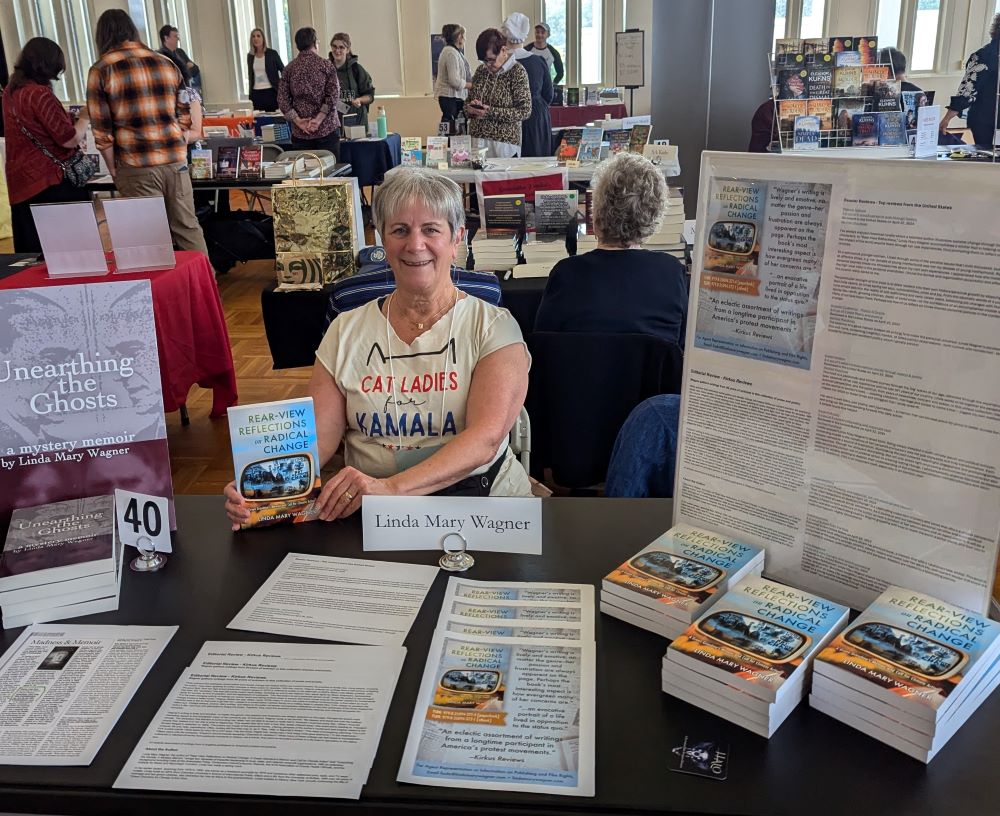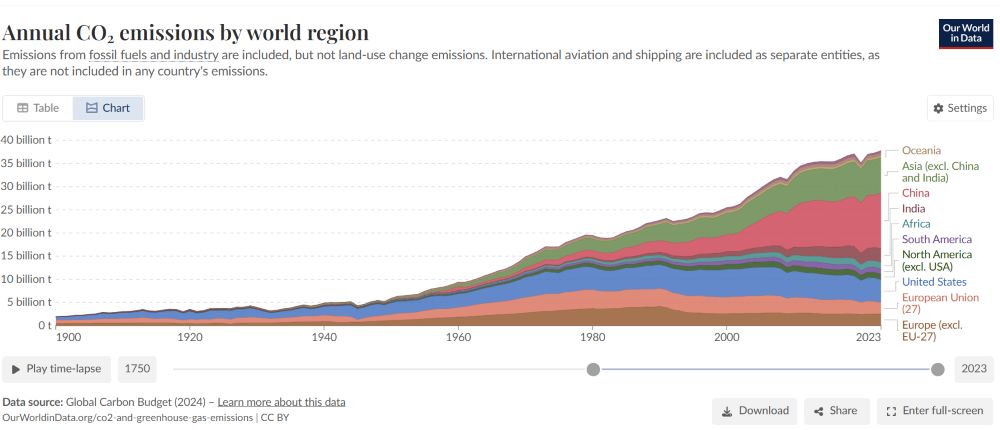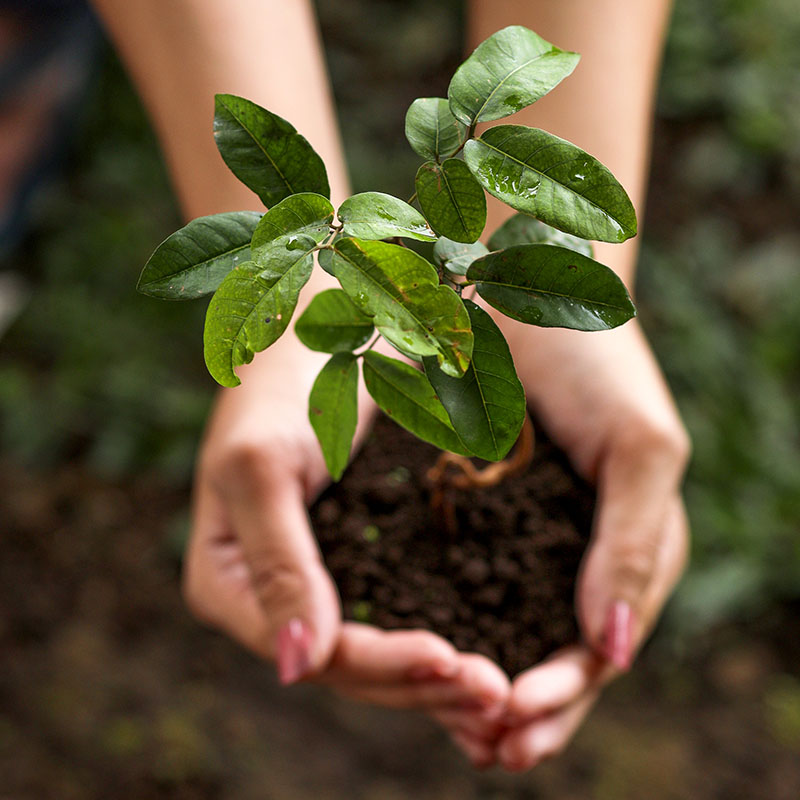In his September newsletters, climate activist Bill McKibben shared plenty of bad news and hopeful updates on the climate front. Since then, the climate-related headlines have continued to raise both alarms and hopes.
Fast Pace of Temperature Rise on Climate Front
Bill points to a new, highly technical study featured in Science, A 485-million-year history of Earth’s surface temperature. While the study makes clear the earth has faced higher temperatures in pre-historic times than it does now, the data raises alarm about the pace of change today toward temperatures that cannot sustain the types of life on earth today.
As Bill states, “The really scary part is how fast it’s moving. In fact, nowhere in that long record have the scientists been able to find a time when it’s warming as fast as it is right now. ‘We’re changing Earth’s temperature at a rate that exceeds anything we know about,’ Tierney (one of the study’s authors) said.”
Bigger, Longer-lasting Hurricanes and Floods
Recent breaking news about Hurricane Helene, along with flooding in Europe, Africa, and the Carolinas in the USA are additional red flags for how climate change is affecting human life and property. The Washington Post also reported that hurricanes are lingering longer than they did in past records.
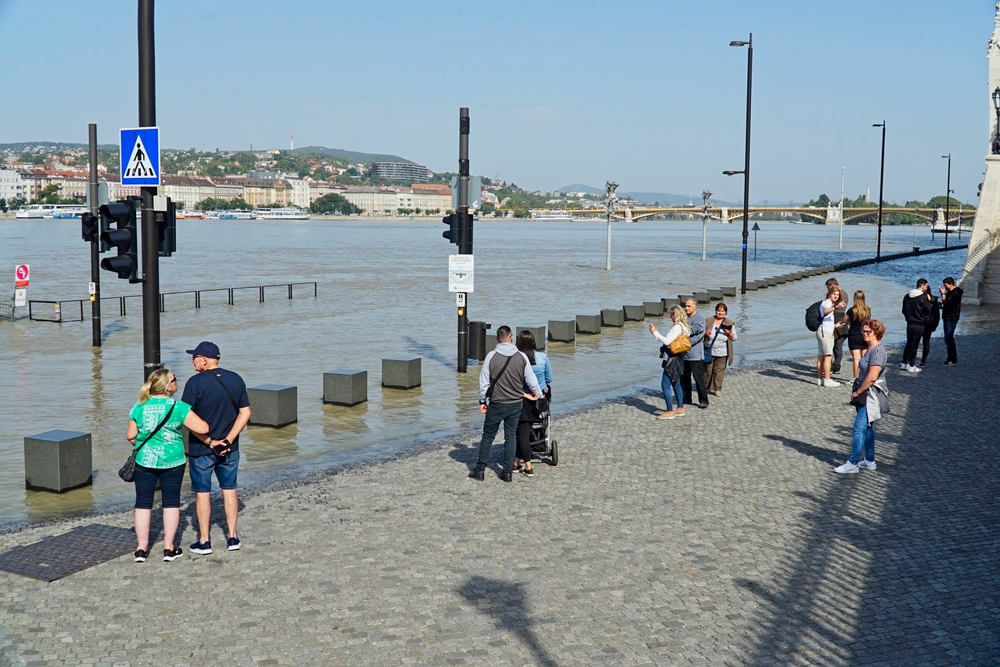
Katherine Viner, editor-in-chief of The Guardian, points to her publication’s frequent coverage of climate impacts. “Europe correspondent Jon Henley, who has been covering the impact of the floods in countries including Poland, Romania and the Czech Republic, reported comments from a senior EU official on the links between the burning and flooding and climate breakdown. Europe environment correspondent Ajit Niranjan reported from near Vienna, as the post-flood clear up began, as did conversations about how Austria can better protect itself from flooding in the future. Ajit also wrote an excellent analysis about the global lack of political will to make us more prepared for these kinds of storms, especially given the direct connection between global heating and the intensity of heavy rain events. As one scientist warned: “It’s clear that even highly developed countries are not safe from climate change, as long as the world burns oil, gas and coal, heavy rainfall and other weather extremes will intensify, making our planet a more dangerous and expensive place to live.”
There’s Good News on the Climate Front Too!
But let’s not forget about the Good News! Bill McKibben had upbeat updates about solar power in two of his recent newsletters. He pointed to an Ember analysis of solar strides toward a renewable energy future: Solar power continues to surge in 2024. The study states: “Ember’s analysis of the latest data on monthly capacity installations shows that the world is on track to reach 593 GW of solar installations by the end of this year. This would once again surpass most industry forecasts, and comes after 2023 showed record growth in solar installations of 86% compared to 2022. Countries need to plan ahead to make the most of the high levels of solar capacity being built today and ensure the continued build-out of capacity in the coming years.”
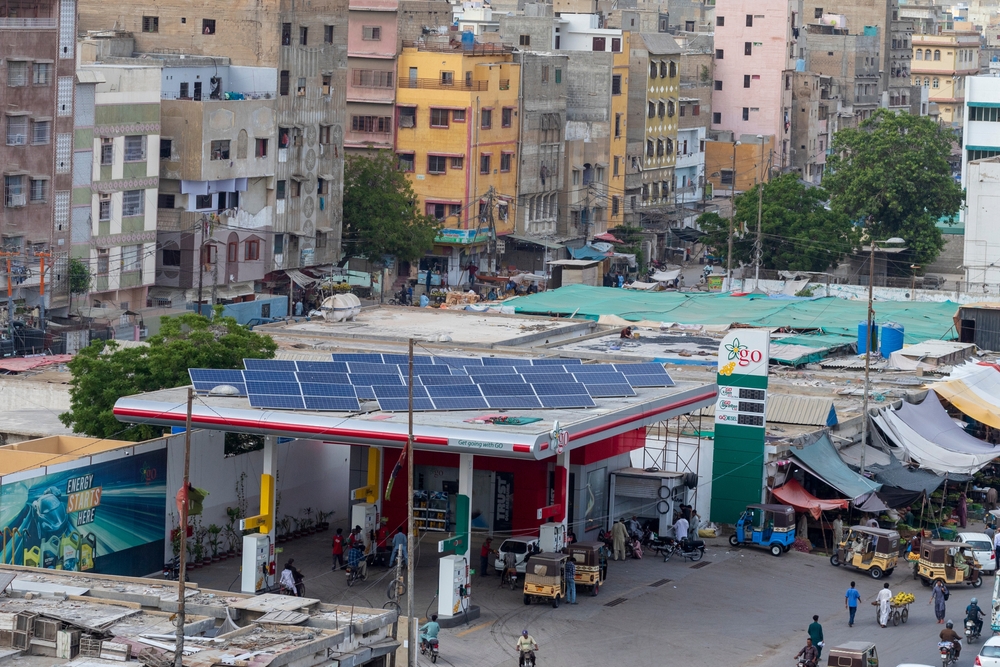
In some countries where you might least expect it, people have taken solar power into their own hands and homes. Pakistan, for example, as reported in The rooftop energy revolution no one knew about, from a newsletter called Exponential View.“Pakistan has become the third-largest importer of Chinese solar modules…in just six months, Pakistan imported solar capacity equivalent to 30% of its total electricity generation capacity – an absolutely staggering amount.”
McKibben reports that other countries are taking similar solar action, including Zimbabwe, Eswatini, Lesotho, Madagascar, and others. “This is extraordinary news, in large part because it’s happening in places where people most need power,” McKibben added.
And the solar surge is just part of the reason for hope. “It comes on top of more visible good news—the IEA said this week that oil demand around the world is softening because of “surging” sales of electric vehicles,” writes McKibben. “In China, demand for gasoline will peak this year or next and then decline sharply. Britain, where the coal era was born, will close its last coal-fired power plant at the end of this month, while California—arguably earth’s most modern economy—has managed to weather its worst heat waves ever without blackouts this summer thanks to ever-growing batteries of…batteries. (The state’s one big recent blackout came when a gas-fired plant went down in Pasadena). Hey, photovoltaics are getting so sensitive that they’re starting to be useful indoors, where they could replace small disposable batteries.”
Lawsuits Over Plastic Recycling Deception
In other hopeful news, the battle against plastics hit the headlines this past week, as Inside Climate News reported, Alleging Decades of Lies, California Sues ExxonMobil Over Plastic Pollution Crisis. In addition, Climate Action California’s newsletter, The Condor, reports that “a coalition of non-profit environmental organizations (including Heal the Bay, the Surfrider Foundation, the Sierra Club and San Francisco Baykeeper) is suing ExxonMobil…The coalition complaint, filed in San Francisco Superior Court, alleges violations of California’s nuisance law and unfair competition law. In the suit, the plaintiffs argue there must be corporate accountability for a decades-long campaign to bury the truth about the known environmental, economic and human health impacts caused by plastics.”
On an entirely different front, David Roberts of the Volts podcast, has some promising news about a technological solution to making residential buildings more energy efficient. His recent episode, A new way to retrofit old buildings … from the outside features a conversation with David Goldstein of Hydronic Shell Technologies. As David describes it, the solution “wraps old multifamily structures in insulated panels with built-in HVAC systems. Goldstein’s approach allows for energy-efficient upgrades without interior disruption, potentially solving a major challenge in building decarbonization.” Listen to the podcast to learn more.
There are many places to keep up with climate news, good and bad. My website lists just a few.

